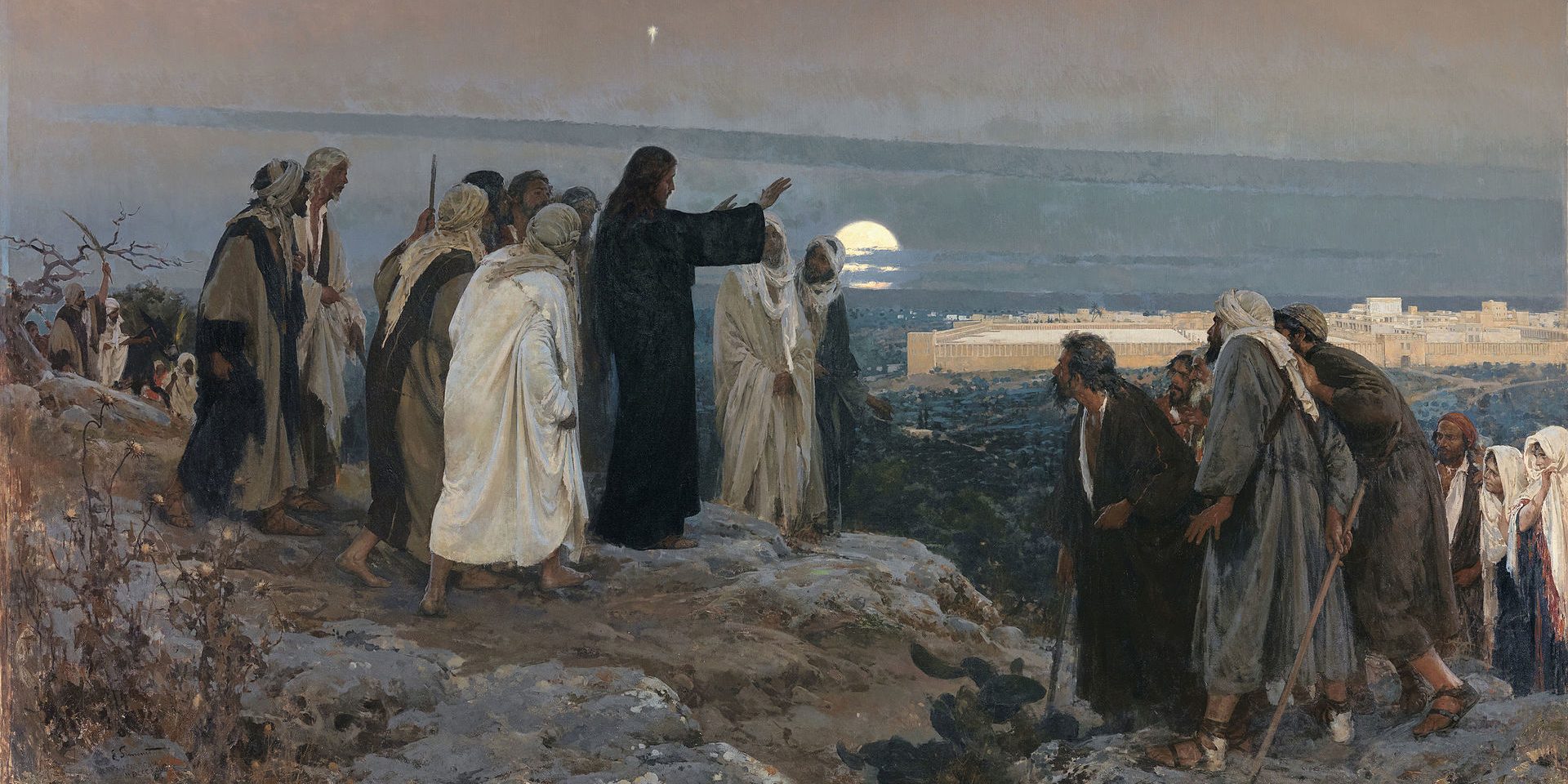Palm Sunday
April 2, 2022
Matthew 21:1-11
The Passion according to St. Matthew
Amid all the excitement of being back in our sanctuary this morning, I imagine that the appropriateness of its being Palm Sunday hasn’t gone unnoticed! Our last service here was on Ash Wednesday, when we burned the palms that were blessed just a year ago. Our pews haven’t yet arrived, and it feels as if we are still on the move. We occupy our sanctuary in a different way today. We can begin to see what it will be like when we are back to ‘normal’, but today we feel more like the jostling crowds that surrounded Jesus on his entry to Jerusalem at the start of Holy Week. Added to that, Palm Sunday is perhaps the most liturgically confusing Sunday in the church’s year. Technically speaking, there are three services in one: the Liturgy of the Palms, the Passion Play recounting Christ’s betrayal and crucifixion, and the celebration of Holy Communion. Fortunately there is one theme that holds all these elements in common; the need to remember. What we choose to remember, and how we choose to remember it shapes who we are in the present.
The three liturgies we are celebrating seem to swing us between two poles of emotion. We move from the excitement of the crowds at the entry of Jesus into Jerusalem to the shouts of ‘Crucify him’ in our passion play. We move between dishonor and honor, weakness and strength, exclusion and inclusion in the space of an hour. Jesus entered Jerusalem in the week before Passover. Many people were flooding into Jerusalem to keep the feast in the most holy city in Judea, and the Roman Governor Pilate was among their number. He arrived in Jerusalem in customary fashion; seated on the back of a magnificent war horse, surrounded by his armed Imperial bodyguards. It must have been quite an intimidating sight. But that display of imperial power is not even mentioned in our story. Instead, the humble little procession of Jesus and his modest donkey is being re-enacted and remembered all over the world today. The powerful one became insignificant; the humble one changed the course of human history forever. What we choose to remember, and how we choose to remember it shapes who we are.
This is not only true for us as individuals, it applies to communities also. St. Esprit has a long institutional memory stretching back almost four hundred years. Our last fire took place almost two hundred years ago when our church was a lot more grand than our modest but much loved sanctuary of today! Last Sunday, St. Esprit was remembered in one of the grandest buildings of the Episcopal Church: The Cathedral of the Holy Trinity in Paris. Our Presiding Bishop, Michael Curry, was presented with a painting of a former Vestry Member of St. Esprit, inspired by our own icon of Elie Naud. He was a member of Saint Esprit from about 1690 – 1704. He is remembered for having survived inhuman imprisonment and torture in the Chateau d’If for his Protestant faith, for his poems and hymns, and for his foundation of the first school for enslaved people in America. He was given the epithet “Mystic of the Galleys and Friend of Slaves”. Last Saturday, our Diocese met at our own cathedral of St. John the Divine to hold a service of apology for our involvement in the slave trade, and those crests that once again hang on our newly-painted walls bear the names of several families who derived their wealth from that same trade. Their stories, and Elie Naud’s story are intertwined. We need to be taught how to remember. Because what we remember and how we remember it shapes who we are.
Once a year, on this Sunday, the Gospel story itself becomes a lesson in remembrance. The Passion Play is an act of remembrance in which we all play a part; great and small, good and bad. I have to admit that I don’t like playing the role of Jesus. I have always thought that it should be played by someone unexpected, because all too often, that is where Jesus choses to make himself known. I make a much better Judas – or perhaps a High Priest. Christians through the ages have re-enacted this story for over almost two thousand years. Calvin believed firmly that the act of reading the scriptures and committing them to memory had the power to reveal what is hidden, and then to heal us and to redeem us. According to Christians throughout the ages, our remembering the scriptures is not just a way to evoke the past, but a tool in the hands of God who uses them to shape us once more in the divine image.
What we remember, and how we remember it profoundly shapes who we are. During our communion services over the next week, we will hear Jesus’ words: “Do this in remembrance of me”. Our memories don’t just shape us. Jesus tells us that by our remembering him, we will gradually be renewed and recreated in the image of our Savior. And one day, we will resemble the one whom we have so faithfully remembered and be made ready to enter the Kingdom to come.
NJM

